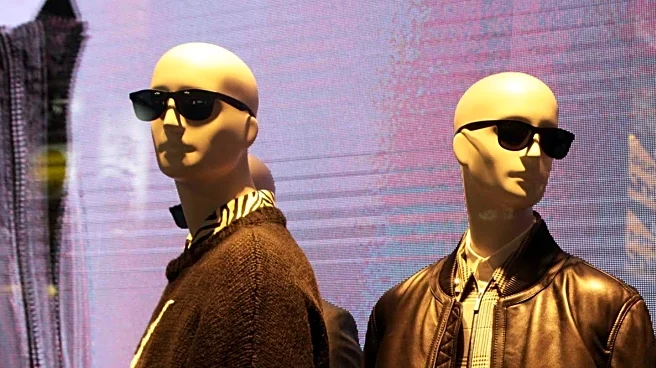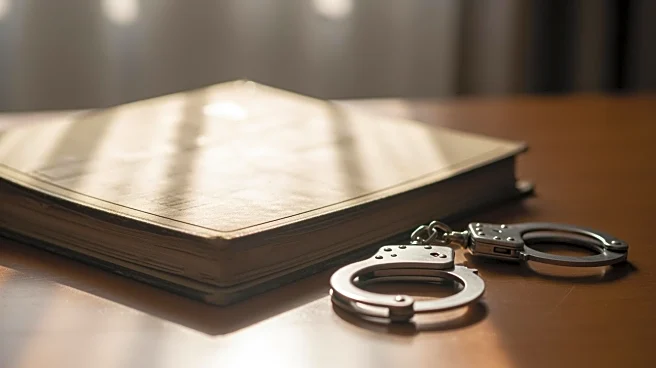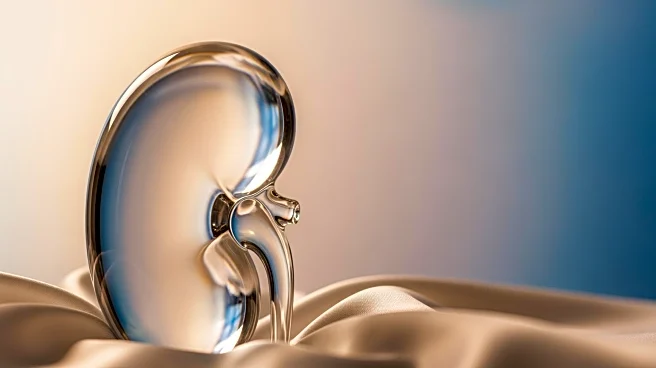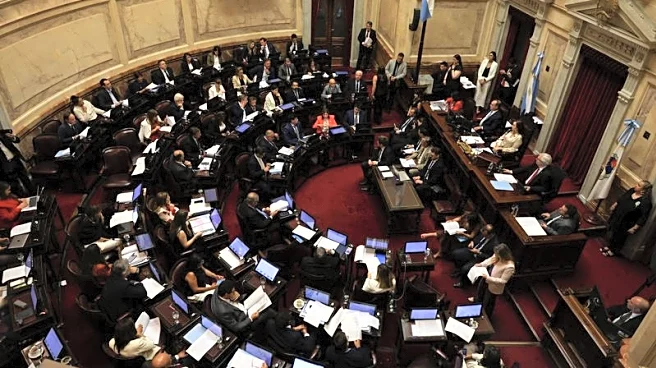What's Happening?
Jean Paul Gaultier's iconic fragrance, Le Male, is being celebrated for its 30th anniversary with a special exhibition titled 'Et Gaultier Créa L’Homme: Le Male—Past, Present, Future' at New York City's historic LGBT Center. The event, organized by writer and activist Adam Eli, brought together eight queer artists to honor the fragrance's cultural significance. The exhibition follows a previous celebration in Paris during Pride month. The event featured various artistic contributions, including a musical set by Oscar Nñ, who crafted a soundscape inspired by the fragrance's olfactive story. Additionally, the Spiral Theory Test Kitchen trio created an edible installation exploring modern masculinity, while video artist Matias Alvial presented a film connecting scent with memory and intimacy.
Why It's Important?
The celebration of Le Male underscores the fragrance's enduring influence within queer culture and its role in shaping perceptions of masculinity. By bringing together diverse artists, the exhibition highlights the intersection of fragrance, art, and identity, offering a platform for queer voices and creativity. This event not only commemorates a significant milestone for the fragrance but also reinforces its status as a cultural icon. The involvement of artists from various disciplines reflects the multifaceted impact of Le Male, which has transcended its commercial origins to become a symbol of self-expression and community within the LGBTQ+ sphere.
What's Next?
The exhibition may inspire further collaborations and events that explore the relationship between fragrance and identity. As the fragrance industry continues to evolve, there could be increased recognition of the cultural and emotional significance of scents, particularly those that resonate with specific communities. The success of this event might encourage other brands to engage with diverse audiences in meaningful ways, fostering inclusivity and representation in the fashion and beauty sectors.
Beyond the Headlines
The celebration of Le Male at the LGBT Center highlights the broader cultural and historical context of fragrance as a form of personal and collective expression. It raises questions about the role of scent in memory and identity, particularly within marginalized communities. The event also prompts reflection on how commercial products can become deeply embedded in cultural narratives, influencing perceptions of gender and sexuality over time.










